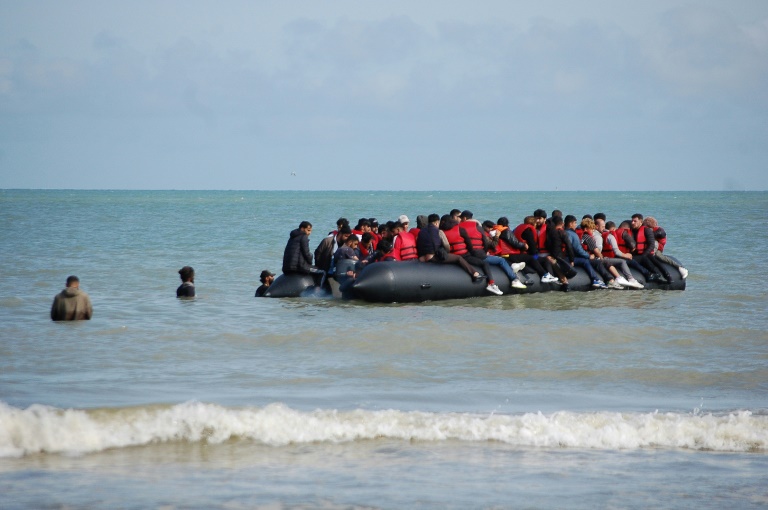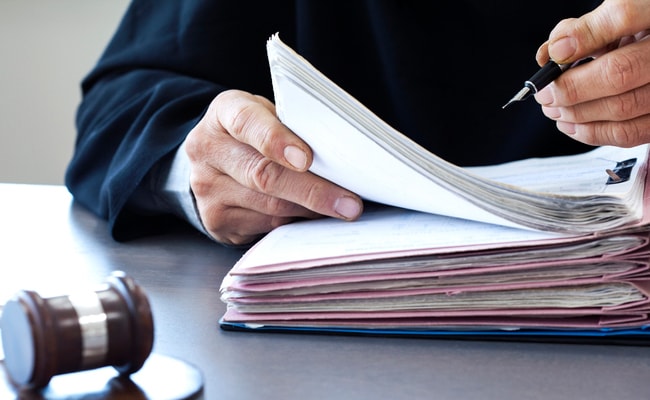The UK Supreme Court will rule Wednesday on whether the government’s controversial Rwanda policy for migrants is lawful, a decision with major political ramifications for Prime Minister Rishi Sunak.
The Conservative leader says the scheme is crucial to reduce rising immigration, which is set to be a key battleground at the next general election expected in 2024.
Five judges will announce their decision at 1000 GMT on a government appeal against a lower court judgement that the policy is unlawful.
The ruling is the latest episode in a long-running saga that began in April last year when the policy was signed under then-prime minister Boris Johnson.
A favourable decision could boost Sunak’s chances of fending off a resurgent Labour party, but defeat would leave his immigration plans in tatters — and could widen rifts in the ruling Tory party between right-wing lawmakers and moderates.
The Migration and Economic Development Partnership envisages sending to Rwanda anyone who has made what the government calls “dangerous or illegal journeys, such as by small boat or hidden lorries” to the UK.
The government insists it is essential in deterring record numbers of migrants trying to cross the Channel from northern France in rudimentary small vessels.
More than 27,000 have made the journey this year.
Sunak made stopping the small boats one of his five key priorities after succeeding Liz Truss in October last year.
His administration says immigration must be slashed to ease pressure on housing and other social services, such as health.
Opponents decry the Rwanda policy as cruel, expensive and difficult to implement. They also argue it is in breach of international law on asylum and refugees.
The first deportees were on a plane and ready to fly to Rwanda in June 2022 until a last-minute injunction from the European Court of Human Rights. Nobody has been deported under the scheme so far.
The government asked Britain’s highest court to rule on the legality of the policy after the Court of Appeal overturned in June an earlier High Court ruling that the plan was broadly lawful.
In the Court of Appeal, judges decided that Rwanda was not a safe third country and there were risks that deportees could be sent to their home countries where they might be persecuted.
Failure in the case will force the government to go back to the drawing board to try to drive down the numbers of asylum seekers.
It is also expected to spark demands from right-wingers that Britain withdraw from the European Convention on Human Rights (ECHR) — a drastic idea that Sunak has so far refused to back.
Political observers expect those calls to be headed by outspoken former interior minister Suella Braverman — sacked by Sunak this week following a string of controversial comments.
Braverman, widely believed to covet the Tory leadership if Sunak quits after the election, has called sending asylum seekers to Rwanda her “dream” and “obsession”.
Sunak’s surprise appointment of ex-PM David Cameron as foreign secretary and switch of James Cleverly to the home ministry suggests he is halting his party’s post-Brexit lurch to the right.
“I think the moves made in the reshuffle seem a shift back to the centre, and with the right of the party already angry/frustrated at that, I think any bad news… could highlight and increase those divisions further,” Chris Hopkins, politics director at polling firm Savanta, told AFP.
Observers note that even a courtroom victory could be problematic, with potential challenges from individuals likely, the public unconvinced and time running out to implement it.
“I think the jury will still be out whatever happens tomorrow,” said Hopkins.
AFP






